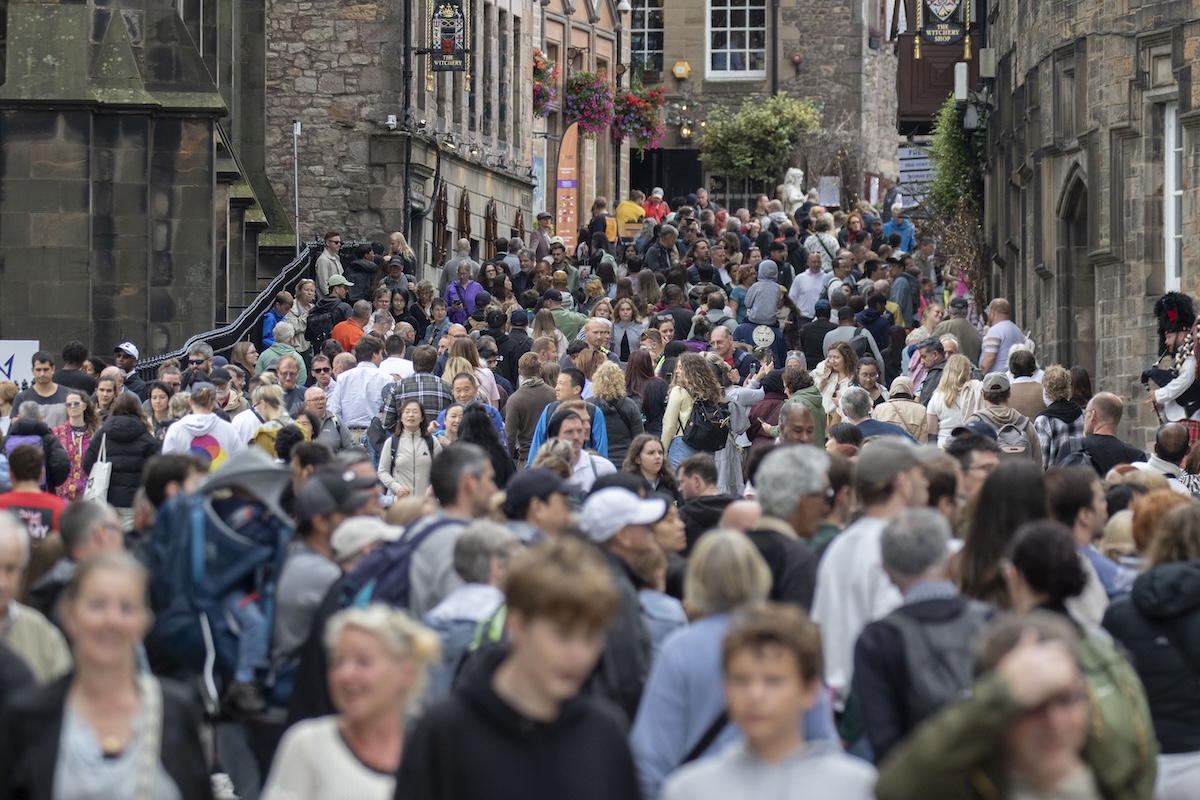The chair of an Edinburgh tourism body has warned that guidance for local businesses on the city’s visitor levy was still unclear, just weeks away from it starting.
At present, any bookings for stays on or after the July 24, 2026 start date booked before October 1 will not be subject to the levy.
At the full council meeting on Thursday, councillors considered whether to push back the October deadline, in response to a motion by Conservative councillor Iain Whyte.
It came after concerns were raised by the Scottish Tourism Alliance (STA) and other bodies, who said that not enough information was available to implement the tax by that date.
But at the meeting, Cllr Whyte said that council officers had recommended that a decision on it be pushed to a later meeting.
The council agreed, with the motion now to be heard at a meeting of the Finance and Resources committee on Thursday, September 18.
If the delay is not approved, there will be just two weeks between the meeting date and the October 1 launch for businesses to respond.
In the past week, Edinburgh Council has published new guidance on how businesses should handle bookings made after October 1.
STA chief executive Mark Crothall said he was relieved new guidance had come out, and said that the delay to the decision meant the city was ‘not brushing aside’ the group’s concerns.
But he also flagged concerns among members of his group about the updated guidance, which was published by the council in the past week.
He said: “We have had a number of business operators contact us who have stated they remain confused and concerned.
“Many questions remained as there is, they just want to ensure they remain legal and compliant.
“Many are also saying that what has been issued by Edinburgh Council is not detailed enough.”
Work on the city’s visitor levy – which, when implemented, is set to be the first in Scotland – has been underway for several years.
The legislation enabling it was passed in 2024, enabling councils to implement visitor levies on overnight stays within their borders.
In Edinburgh, it will see a 5% charge, calculated before VAT, placed on the first five days of any overnight stay in the Capital.
Debate has been underway for months on how the money – estimated to be around £50 million per year – from the visitor levy will be spent.
Some has already been set aside for various tasks required by legislation, but much of it will be decided by councillors and officers in the coming months.
Mr Crothall expressed that his group was not looking to obstruct the legislation, but seek clarity on behalf of businesses in the sector.
He said: “As an industry, we are not trying to halt the levy being applied in Edinburgh by July 24, 2026.
“But we are asking for a realistic timeline for implementation ahead of this date to comply with what is legally required of us.”
He also said that a delay to a launch would allow for a ‘legally compliant, smooth and coordinated’ launch of the levy.
STA initially wrote to council leader and Labour councillor Jane Meagher asking for the delay to be put into place on July 14.
It was cosigned by a range of bodies, including major technology and hospitality firm Booking.com and the Scottish Licence Trade Association.
But Cllr Whyte said that Cllr Meagher ‘failed to address’ the ask made in the letter in a response to them, which sparked his putting the motion forward.
Most stays in overnight accommodation will be covered by the levy, but there are some exceptions.
People staying in overnight accommodation to escape poor housing conditions or domestic violence and asylum seekers and refugees will be exempted from the levy.
And, anyone without a permanent or safe place to stay, including people who are homeless or at risk of homelessness, will not have to pay.
Additionally, members of travelling communities, and people in receipt of some benefits, will not be liable to pay it.
The council has said it is developing guidance on how people can reclaim the levy if they fall under one of these categories.
By Joseph Sullivan Local Democracy Reporter
The Local Democracy Reporting Service (LDRS) is a public service news agency. It is funded by the BBC, provided by the local news sector (in Edinburgh that is Reach plc (the publisher behind Edinburgh Live and The Daily Record) and used by many qualifying partners. Local Democracy Reporters cover news about top-tier local authorities and other public service organisations.
Like this:
Like Loading…
Related
